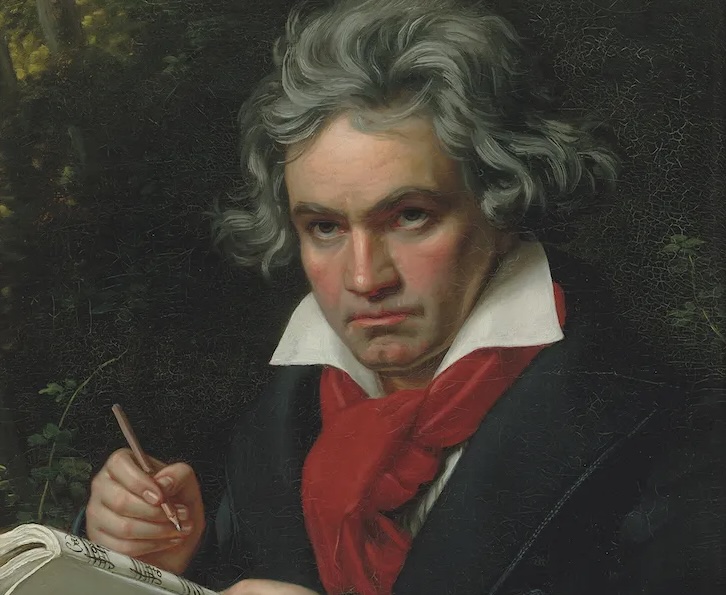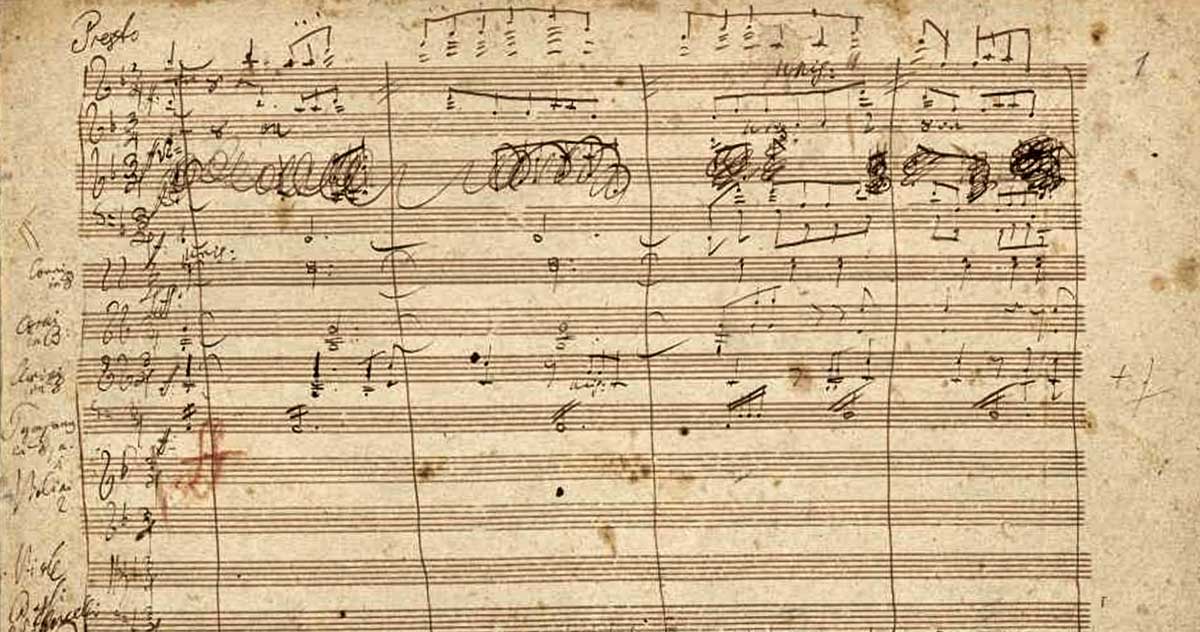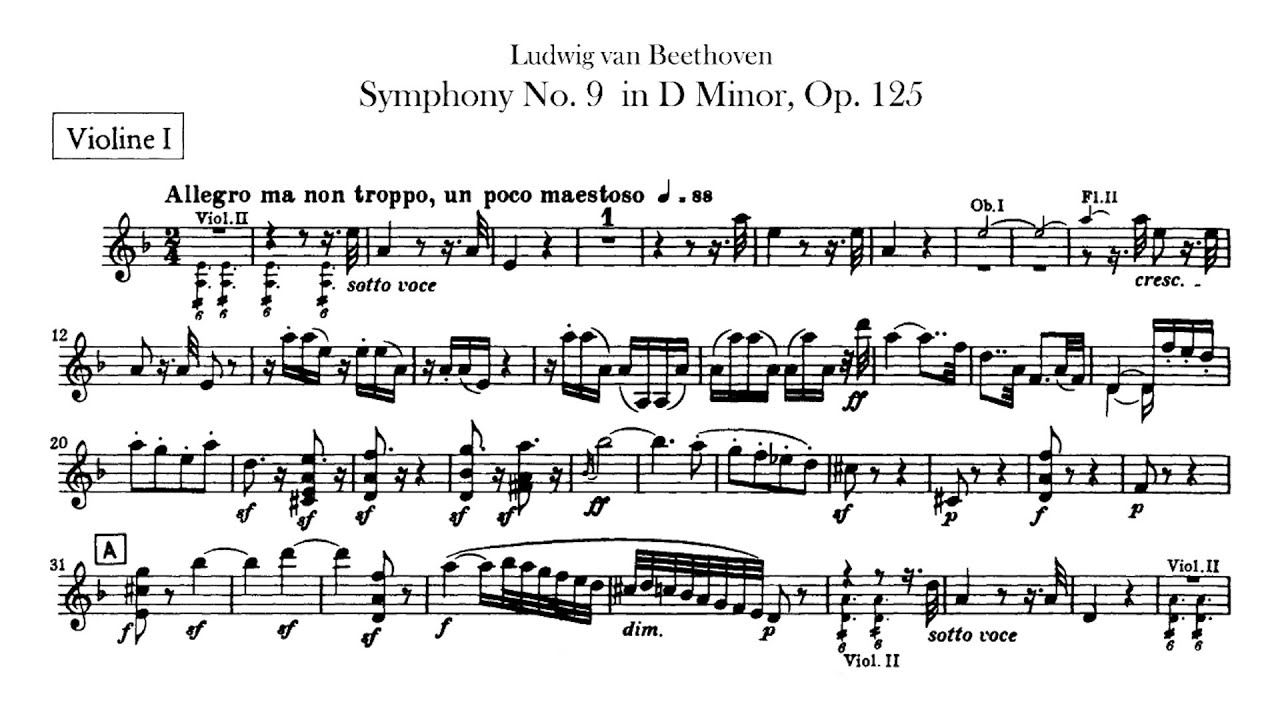Moxie: Can You Hear The Music?
Sep 22, 2025"Your brain is wired to hold a vision beyond your immediate conditions. "
(In 1820, Joseph Karl Stieler painted Beethoven, pen in hand, writing notes he could no longer hear: portrait of belief in motion.)
ONE STORY
The music ended. The hall erupted. And the composer stood still.
He didn’t know. Couldn’t know.
Why? Because he was now deaf.
So Caroline Unger, one of the singers, walked over, touched his arm, and turned him around. Only then did Ludwig van Beethoven see it: a hall full of people on their feet, roaring with gratitude for a sound he could no longer hear.
By 1824, Beethoven had been profoundly deaf for years. His hearing loss was complete enough that he couldn’t follow conversations or hear his own compositions performed.
Many in Vienna had written him off. His earlier works were celebrated, yes, but critics and colleagues assumed his career as an innovator was over. For a musician, losing hearing was a death sentence.
And yet, in that silence, he composed his Ninth Symphony. A work now considered one of the greatest achievements in music, written by a man who could not hear a single note of its premiere.
Beethoven’s story reminds us: belief is not about favorable conditions. The conditions said he was finished.
Despite his circumstances, Beethoven kept writing.

(Beethoven's autograph score, Symphony No. 9, fourth movement ("Ode to Joy"). Photo courtesy of Staatsbibliothek zu Berlin.)
The Brain Science
Beethoven couldn’t hear, but his brain could still imagine sound. Neuroscientists call this auditory imagery, the capacity of the brain to simulate music in the absence of actual sound waves.
When trained through years of practice, the auditory cortex doesn’t shut down without input; it adapts. It lights up in response to imagined notes, rehearsed scales, remembered rhythms.
In fact, fMRI scans show that the same neural circuits activate whether a pianist is striking keys or simply visualizing themselves at the keyboard.
This is the deeper truth about belief: Your brain is wired to hold a vision beyond your immediate conditions.
It can simulate futures, rehearse victories, and embody skills before they show up in reality. That’s not fantasy; it’s neuroplasticity.
Beethoven’s Ninth wasn’t a miracle from nothing. It was the culmination of decades of practiced patterns, so deeply ingrained that even silence couldn’t erase them.
His brain could still write the music he could no longer hear.
📜 TWO QUOTES
"To play a wrong note is insignificant; to play without passion is inexcusable.”
- Ludwig van Beethoven
“When everything seems to be going against you, remember that the airplane takes off against the wind, not with it.”
- Henry Ford
🚀 THREE TAKEAWAYS
1. Rehearse until it’s yours.
Skill becomes belief when the brain can run the pattern even without perfect conditions. Practice until silence can’t erase it.
2. Trust your inner rehearsal.
External signals (critics, setbacks, silence) may say you’re finished. Your brain’s internal simulation can carry you further than outside approval.
3. Belief is built, not borrowed.
You don’t need the world to clap yet. You need to keep writing, keep practicing, keep stacking repetitions until the work itself becomes proof.
🔍 MOXIE REFLECTIONS
- In what areas of my life am I deaf to the applause? Unable to notice the impact I’m making, and how might I turn to see it more clearly?
-
What practice or skill must I keep practicing?
-
If it's lost, what small action could reawaken my sense of agency?
🛠️ TOOLS FOR GROWTH
🧩 PATTERN RECOGNITION: Learned Helplessness
Learned Helplessness is when your brain starts to believe that effort doesn’t matter. That no matter what you do, the outcome is already decided.
It happens after repeated setbacks: failed attempts, harsh criticism, conditions stacked against you.
Eventually, you stop trying, not because you can’t, but because you’ve convinced yourself it won’t change anything.
🧠 MENTAL SKILL OF THE WEEK: Agency Calibration
Agency Calibration is the skill of the practice of training your brain to notice where you do have influence, even in small ways, and acting there.
Why it matters: Learned helplessness shrinks your sense of control. Agency calibration re-expands it. By stacking small, chosen actions, you retrain your brain’s circuitry to associate effort with impact.
How to use it:
- Break the impossible into the smallest possible.
- Ask: What’s one lever I can actually move today?
- Act on it, then record the evidence that your choice mattered.
The paradox: The more you practice agency in small things, the more capable you become in big things. Power grows by proving to yourself that your effort still counts.
🌱 ONE MORE THING
Don’t talk to me about your circumstances. They’ll always have something to say: too late, too hard, too broken, too far.
Instead, talk to your circumstances about YOU. Your vision. Your resolve. Your power.
Circumstances shift. Conditions fade. But the story you tell about yourself, that’s what endures.
Beethoven didn’t argue with his deafness. He composed anyway.

